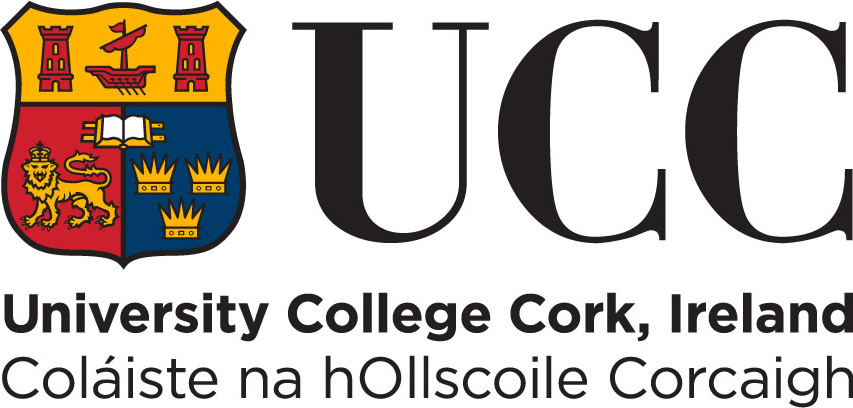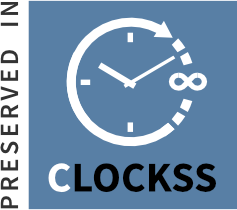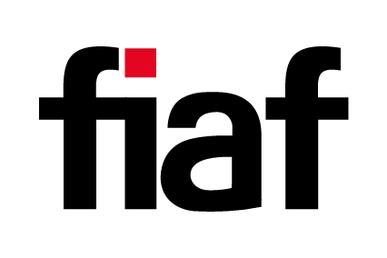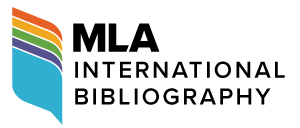Sheffield Doc/Fest Film Festival 2017
James Mulvey
Sheffield is synonymous with creators and everybody has a story to tell, from the traditional steel workers, to the contemporary brewers of beer, and the futuristic designers of robotics. This was indeed the central theme of the 2017 documentary film festival—documentary as storytelling. This year’s Doc/Fest brought stories from all over the world, through a variety of subthemes, expanding the boundaries of storytelling through the strands of Doc/Adventure, Doc/Expose, Doc/Love, Doc/Rhythm, Doc/Think, Doc/Visions, Doc/Retro, Focus/India, Focus/UK and Alternate Realities. The festival celebrates the art and business of documentaries, promoting both the creativity and the industry of documentary making through screenings, talks, seminars and networking events for filmmakers, delegates and executives. Taking place across fourteen venues, with an average of six screenings per day in each venue, over six days, the festival presented a wide array of offerings addressing social, political, racial, artistic and philosophical subjects. This report will discuss three films and the virtual reality exhibitions as flavours of the storytelling theme of this year’s festival.
The Doc/Expose thread comprised of films exploring tales of corruption, injustice and crime, taking well-known headline stories and uncovering the truth behind them. One such documentary was The Workers Cup (Adam Sobel, 2017), which examined the preparations for the 2022 Qatar World Cup from the perspective of some of the 1.6 million migrant workers building the stadia. This feature-length documentary highlights the contrast between the poverty of the labourers working on the football extravaganza and the wealth of FIFA and of the host country. The workers are presented with the opportunity to play the sport they love, and showcase their skills as players in a football tournament called The Workers Cup, a competition in which rival companies are pitted against each other. Some of the men fantasise that, if they perform well, they will bring honour to the company they work for and may even earn professional contracts and escape the awful treatment to which they are subjected in the seven-day work camps where they live. Playing in the tournament offers these men a small amount of freedom and self-respect, in that normally they cannot leave the camps. Their paperwork has been confiscated by their employers, so returning home is made impossible. It is remarkable that the filmmakers were given the opportunity to make this film but this, in itself, is not enough to carry the film. The film does pose pertinent questions, but its scope is often too broad and leaves audiences wanting a deeper analysis of the complexities and nuances of the human stories being told.
The Doc/Think thread explores new ways of thinking about the world examining topics such as philosophy, science, politics and innovation. One of the standout films in this thread was The Work (Gethin Aldous and Jairus McLeary, 2017). The Work is a hugely intimate documentary that captures a group therapy session from Folsom State Prison, the infamous Californian maximum-security penitentiary. This four-day therapy programme brings together prisoners and members of the public in a series of intense and revealing engagements. The film focuses on one small group, but the screams of pain from other groups can be heard for the duration of the film. For the prisoners, gang and racial affiliations are left behind and these men openly share and listen to each other’s pain. One prisoner is there to grieve for his sister, who has passed away, because he cannot let his feelings be known on the yard, as any sign of weakness could mean his death. The sessions allow the prisoners to be human and, for the men who come from the outside, to be able to face up to their fears. A young man who works in a museum confronts his relationship with his father in the performative spirit of the therapy. The filmmakers cleverly keep most of the action inside the chapel at Folsom prison, except at the very beginning when the visitors are set to enter the prison and a conversation in the van when the visitors are being taken to their lodgings. This is a truly inspirational film, which took over nine years to make, with some wonderful editing and remarkable characters.
The Doc/Visions thread was composed of exploratory and radical filmmakers, with bold and exciting stories. Rat Film (Theo Anthony, 2016) is a difficult film to categorise. It is set in Baltimore, and on the surface it appears to focus on the city’s rat problem. However, Anthony moves through the realms of science, psychology, crime detection, urban planning, politics and class issues using the rat as almost a euphemism for the human experience, specifically humans within a certain socioeconomic demographic. The film takes the viewer on a meandering journey, examining the rat from the perspectives of those who exterminate rats, hunt them, love them and live with them. The film verges on the cusp of the essay film genre, with a bizarre blend of virtual reality sequences, deadpan narration and witty, insightful commentary. This is a thought-provoking documentary that elicits squirms and sympathy for the much-maligned rat. Such is the power of this documentary that one ends up feeling sympathy for the rat. It is a discomfiting experience that the treatment of the rat infestation is an analogy for the treatment of the poor by the privileged. This is a powerful film that combines an unusual, artistic approach with unfamiliar perspectives, forcing the viewers to confront their own presuppositions and fears.
One of the most innovative features of this year’s festival could be found under the umbrella of Alternate Realities, where invited festivalgoers immersed themselves in the intriguing otherworldly narratives that included the spectator as part of the story. The Alternate Realities thread took place daily throughout the festival in three venues, comprising of two pop ups and two separate spaces within Millennium Gallery. At the Virtual Reality Portal on Tudor Square, small groups were invited into an igloo-type building. Once inside, several projectors worked tirelessly to envelop the viewer in a 360-degree augmented reality. The images surrounded the users, bamboozling the senses into believing that they were taking part in a shared underwater adventure with filmmaker Jeff Orlowski. His film, Chasing Coral: The VR experience (2016) documented the 2016 coral-bleaching event at the Great Barrier Reef. This was followed by a second screening, Planet ∞ (Momoko Seto, 2017), which depicts an ecosystem populated by fungi, moulds and giant carnivorous tadpoles. Unsurprisingly, this film was visually less engaging owing to its muted palette, which was comprised of mainly browns and greys.
A second pop up event could be found at the VR Campfire at Upper Chapel. Here, visitors were invited inside a tent and, once seated, a headset was placed over their eyes and earphones covered their ears. One was then transported into another world, and took part in a number of adventures ranging from Fossil Hunting in the Gobi (Erin Chapman and Jason Drakeford, 2016), where one joined explorer Roy Chapman Andrews as he crosses the sands of Asia’s largest desert, to Yeh Ballet (2017) by Sooni Taraporevala, in which participants followed the stories of two boys from Mumbai dreaming of being the principal ballet dancers with big American companies, as they set out to show that ballet is not solely a pursuit of the wealthy.
At the first space in the Millennium Gallery there was a more traditionally styled exhibition, nonetheless with a focus on technologies and alternate realities. Director Gonzalo Alvarez’s arcade game Borders (2016) is a political art game that illustrates the dangers Mexican immigrants face when crossing borders into the US. Skeleton figures litter the landscape depicting the failed crossing attempts by other gamers. In an interactive graphic novel set in the Second World War, Tell Me Your Secrets (Michael Orwell, UK 2016), participants were asked to make choices during meetings that could have a profound impact on the contemporary political landscape. This was set against a narrative backdrop concerning Britain’s scientific missions in terms of its budding and long-term relationship with the US. In Wikileaks: A Love Story (2016), Anna Ridler invited visitors to engage with an installation through an iPad to highlight and construct an unlikely love story, and to watch it blossom and fall apart through email in the workplace.Such was the demand for tickets to the second space at the Millennium Gallery that visitors had to book well in advance and were limited to a time of thirty minutes in the exhibition. On admission, visitors scrambled to quickly book three interactive stories. All these interactive narratives immersed the user in full headgear and earphones to block out the external world. In order, and for reasons of proximity, I chose Blindfold (Navid Khonsari and Vassiliki Khonsari, 2017), Death Tolls Experience (Ali Eslami, 2016) and Trafficked (Owain Rich and Charlie Newland, 2016). In Blindfold, you play the role of a journalist and are being interrogated in Iran’s Evin prison. To participate you are asked a number of questions, each infringing on your human rights and you must navigate this by nodding to agree or shaking your head to disagree with your interrogator and to communicate your decisions. In The Death Tolls Experience, visitors take a virtual journey through the refugee crisis in Europe to the bloodbath in Syria. The stories are deeply emotive, as opposed to the dry, media-spun narratives associated with mainstream broadcasting. The power of this experience was evident when, as the user, you automatically put out your hands wanting to push things away, or when you wanted to stop moving towards the sea. Finally, Trafficked put you sitting on a bed with the customary headset and earphones, and was based on interviews with Maria, a woman who was kidnapped and then spent the next eight years of her life in enforced prostitution. This simulation was the most visceral, as when the pimp walked past, you couldn’t help but feel vulnerable and in fear of him violently attacking you, just because he could. Although, logically, you knew it was not real, when you clenched your hands, all you could feel was the bed beneath your fingertips, which added another layer to the experience. Such was the sensory impact that I still shudder when I think about it. Overall, it was wonderfully exciting to be able to experience these augmented realities in their infancy, to explore these world through the eyes of the educators and creators who are the pioneers in this new form of storytelling.
The Sheffield Doc/Fest film festival brought together global stories told from local perspectives over numerous formats and durations. The festival certainly achieved its objective of storytelling; even beyond what has been discussed here, there were a number of talks, interviews, and events that infused and embodied this narrative-driven festival. The festival’s expansive catalogue brought together a wide array of documentary styles including music biographies, art documentaries and political investigations. The augmented reality programme added another dynamic layer to the storytelling theme. The festival was as vibrant and varied as its attendees and, given the high quality of the films screened, the success of the Doc/Fest is ensured for many years to come.
References1. Blindfold. Created by Navid Khonsari and Vassiliki Khonsari, iNK Stories NYC, 2017.
2. Borders. Created by Gonzalo Alvarez, Gonzzink, 2016.
3. Chasing Coral: The VR Experience. Created by Jeff Orlowski, Exposure Labs, 2016.
4. DeathTolls Experience. Created by Ali Eslami, Alllesss, 2016.
5. Fossil Hunting in the Gobi. Created by Eric Chapman and Jason Drakeford, American Museum of Natural History, 2016.
6. Planet ∞. Created by Momoko Seto, Barberousse Films, 2017.
7. Rat Film. Directed by Theo Anthony, Memory, 2016.
8. Tell Me Your Secrets. Created by Michael Orwell, BBC, 2016.
9. Trafficked. Created by Owain Rick and Charlie Newland, BBC World Service, 2016.
10. Wikileaks: A Love Story. Created by Anna Ridler, 2016.
11. The Work. Directed by Jairus McLeary and Gethin Aldous, Blanket Fort Media, 2017.
12. The Workers Cup. Directed by Adam Sobel, Company 3, 2017.
13. Yeh Ballet. Created by Sooni Taraporevala, Memesys Culture Labs, 2017.
Suggested Citation
Mulvey, J. (2017) Sheffield Doc/Fest Film Festival 2017. Sheffield, UK, 9–14 June 2017. Alphaville: Journal of Film and Screen Media, 13, pp. 185-188. https://doi.org/10.33178/alpha.13.14.
James Mulvey is a PhD student in University College Cork. His research interests include film philosophy, art cinema, Gilles Deleuze and Felix Guattari.









